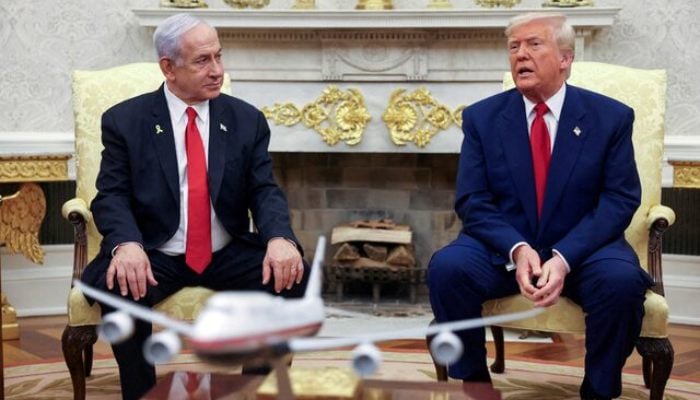Select Language:
Less than four months ago, President Donald Trump met with Qatar’s leader, admiring his luxurious palace and signing a broad defense agreement with the Gulf nation, which hosts the largest US military base in the Middle East. However, Israel’s unexpected strike on Hamas leaders in Doha this past Tuesday has disrupted that relationship, causing Trump to express strong disapproval and prompting sharp criticism from Qatar and Western allies.
The Israeli Prime Minister Benjamin Netanyahu ordered the attack, targeting Hamas political offices. The operation resulted in the death of a Qatari security officer and five others but did not eliminate the Hamas leaders themselves. Trump stated he was “very unhappy about every aspect” of the Israeli action.
Despite these tensions, experts indicate that such incidents are unlikely to alter Trump’s core approach toward Israel. In fact, they reveal the pragmatic and sometimes distant nature of the Trump-Netanyahu alliance. US officials noted that Israel did not provide formal warning to Washington before executing the strike, reminiscent of Israel’s September 2024 attack on Hezbollah, where thousands of fighters were wounded without US prior knowledge.
While Trump has occasionally criticized Netanyahu, his administration has consistently supported Israel’s efforts to weaken Hamas and has allowed Israel considerable independence on significant issues like Iran’s nuclear program. Analyst Aaron David Miller mentions, “Trump is likely annoyed by Netanyahu’s tactics, but he agrees with the idea that Hamas must be deeply weakened, not just militarily but fundamentally.”
The White House responded to inquiries by referencing Trump’s remarks on Truth Social, where he stated that the strikes did not serve US or Israeli interests. Nonetheless, Trump acknowledged that “eliminating Hamas, which profits from Gaza’s suffering, is a worthwhile goal.”
Some analysts suggest that Netanyahu’s future actions could test Trump’s patience, especially if more surprises occur. This could result in a reduction of political backing for Israel’s ongoing Gaza invasion, which has drawn condemnation from European and Arab nations amid rising famine conditions. The operation in Gaza was sparked by a Hamas-led attack in southern Israel on October 7, 2023.
Dennis Ross, a former Middle East negotiator, notes that if Arab nations voice concerns about Israel’s actions, they might be asked to present a credible plan for what comes after Hamas in Gaza. Israel’s strike in Doha might also diminish Trump’s hopes of expanding the Abraham Accords, the historic agreements brokered during his administration that normalized relations between Israel and several Arab countries.
Despite these potential strains, a significant rift between Trump and Netanyahu appears unlikely. Michael Oren, Israel’s former ambassador to the US, explains that Trump values strength and deals that end conflicts, and as long as Netanyahu appeals to these priorities, the relationship should remain intact.
The partnership has experienced peaks and valleys, with recent years showing fluctuations. During his first foreign visit in May, Trump traveled to Saudi Arabia, Qatar, and the UAE but skipped Israel—a move seen by many as a slight. When Trump returned to office in January, he aimed to rebuild deteriorated relations, agreeing to lift sanctions on the Syrian government based on Saudi MBS’s advice, although this alarmed Israeli officials wary of Syrian President Al-Sharaa.
Following recent Israeli airstrikes on Iran in June, Trump surprised some by deploying B-2 bombers to strike Iran’s nuclear facilities, contradicting his campaign promise to reduce foreign conflicts. That effort didn’t necessarily serve his diplomatic goals, as subsequent comments and actions reflected ongoing tensions and unilateral Israeli operations without prior coordination with Washington. Experts like Jonathan Panikoff emphasize that Netanyahu continues to act primarily in Israel’s best interest, often independently of US preferences.







